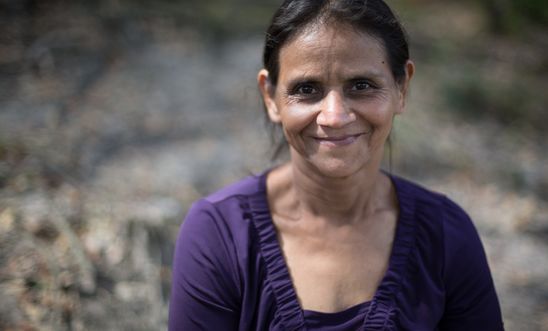
Honduras: Rio Blanco land defenders' protection extended

The Honduran government agreed to new protective measures for the indigenous community of Río Blanco. This will include protective measures for Rosalina Dominguez, a member of the community who received threats in 2019. These measures were reviewed by and agreed upon with members of the Civic Council of Popular and Indigenous Organizations of Honduras (COPINH).
We believe the public campaign, including appeals sent by Amnesty International members, contributed to these positive developments. Amnesty International continues to monitor the situation and will work with COPINH to ensure all the protection measures that have been committed to are put into effect, and that the attacks against members of the Río Blanco community are investigated. Amnesty International will react if further action is required.
For security reasons, we will not be disclosing further information about the protective measures taken to ensure the safety of the Río Blanco community.
No further action is requested at this time. Many thanks to all who sent appeals.
Background:
On 16 July 2019, COPINH told Amnesty International that members of the Río Blanco community in Intibucá, south west Honduras, saw their food crop intentionally destroyed – affecting 25 families.
The attack took place in the same area where Rosalina Dominguez, her four sons, and two other members of the Río Blanco community, received verbal death threats on their way to work, on 30 April and 1 May 2019. They were threatened by a group of at least seven people, one of whom was armed. COPINH called on the Honduran government to investigate these threats and guarantee the safety of the members of the community.
There has been a history of attacks against the Lenca Indigenous community of Río Blanco, who has been fighting against the construction of the Agua Zarca dam on the Gualcarque River. The land where the dam will be constructed occupies land where the community has been living for centuries. Community members claim there was no free, prior or informed consultation to the construction of the dam.
COPINH has been fighting for better living standards for the people of Río Blanco for over 20 years. Members of COPINH have been targeted with threats and harassment for years in connection with their work. Berta Cáceres, leader and co-founder of COPINH, was shot dead on 3 March 2016 in her home.
On 7 March 2016 the Inter-American Commission on Human Rights issued a new precautionary measure of protection in favour of all COPINH members and Berta Caceres' family on the grounds of the risks of their work defending human rights, the environment and natural resources, as well as their increased vulnerability since Berta Caceres' killing.
Honduras remains one of the deadliest countries in the world for human rights defenders.
- Downloads
- Download in PDF
- Download in Word